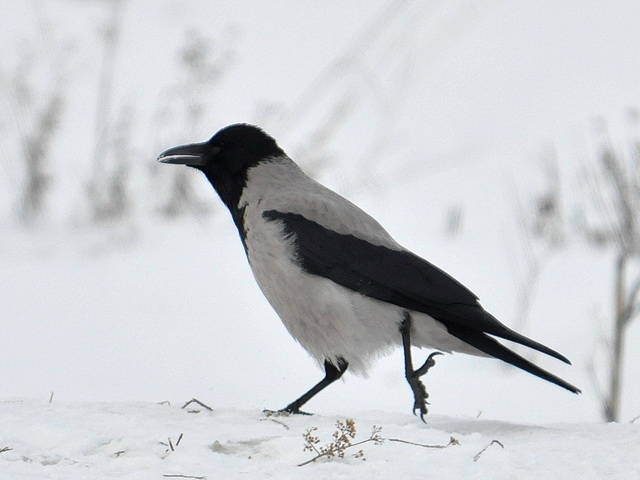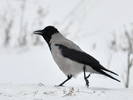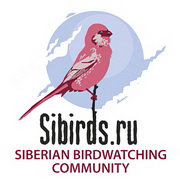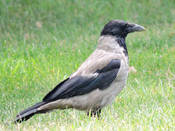search
classification
|
basic information
|
Hooded Crow
Corvus cornix (Linnaeus, 1758)

|

|
|
|
2016-01-08
Semiletka, Sovetsky raion, Altaisky Krai. |
© Liudmila Pozhidaeva
|
|
Biology
Common resident (in northern regions) / winter visitor (in southern regions). Inhabits deciduous, mixed and coniferous forests, groves, shelterbelts, birch and pine forest-patches, bush thickets and reed beds in rivers, lakes and marshes; mostly on plains, low mountains and in Altai foothills up to 550 m. It free hybridizes with Carrion Crow, in 1958 on Markakol lake (1450 m) the hybrid birds were dominant, but since 1966 only Carrion Crow were recorded. During migration and wintering occurs in open lands, villages and towns, on dumps, stubble fields and also near farms. Spring migration begins in late February – early March, most birds (of northern populations probably) flies off from southern areas in March; last birds recorded at Chokpak Pass in late April – mid May. Occurs mostly in flocks of several dozen birds, gathering in thousands at roost sites. Appears in March at breeding sites. Breeds in separate pairs at 100-250 m one from another. Nest is located on tree (poplar, elm, pine, spruce, birch, asp) or bush (willow, tamarisk, Nitraria sp.) at height 0.5-15 m above the ground, or on the old reed heaps, geodesic towers, ruins of human construction in treeless county. Both partners repair old nest or build new one from the twigs and lined it with hair, some rags and pieces of paper. Clutch of 2-7, usually 5-6 eggs are laid from early April to end of May. Probably only female incubates about 17-19 days. Both parents feed juveniles which fledge at age 32-33 days, in late May – early July. Repeated breeding after loss of first clutch is common. Autumn wandering begins in late July to early August. Migration (of northern populations probably) begins in mid – end September, most birds appears in southern areas n October - November.
References













